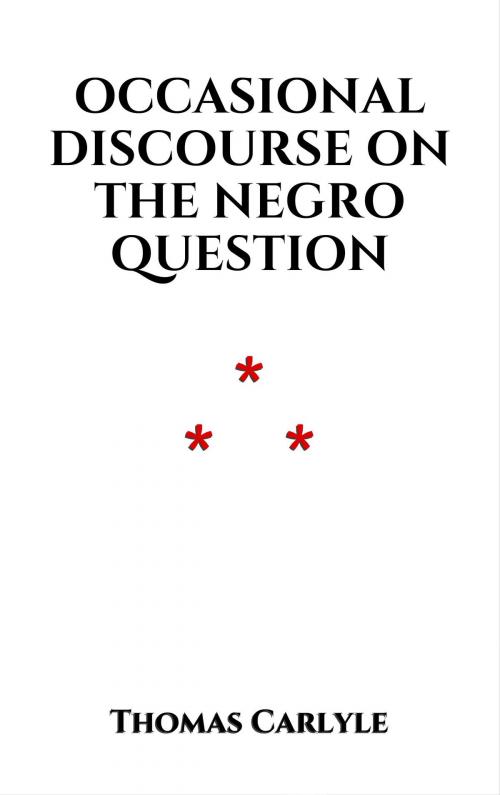Occasional Discourse on the Negro Question
Biography & Memoir, Political, Fiction & Literature, Short Stories, Classics| Author: | Thomas Carlyle | ISBN: | 1230000395649 |
| Publisher: | Edition du Phoenix d'Or | Publication: | April 29, 2015 |
| Imprint: | Language: | English |
| Author: | Thomas Carlyle |
| ISBN: | 1230000395649 |
| Publisher: | Edition du Phoenix d'Or |
| Publication: | April 29, 2015 |
| Imprint: | |
| Language: | English |
The article began as a devil's advocate work with the aim of challenging what Carlyle perceived to be a hypocritical philanthropic movement for the emancipation of West Indian slaves. It is important to note that in this context, devil's advocate refers not to a sarcastic overtone but to an alternate view than the continually accepted immorality of slavery. Although the slave trade had been abolished in the British colonies by 1807, and in theBritish Empire by 1833, Cuba and Brazil continued to use slaves for economic advantage after 1838. In its original publication, Carlyle presented it as a speech "delivered by we know not whom" written down by an unreliable reporter by the name of "Phelin M'Quirk" (the fictitious "Absconded Reporter"). The manuscript was supposedly sold to the publisher by M'Quirk's landlady in lieu of unpaid rent - she found it lying in his room after he ran off.
The bigger question is what the Negro Question is really about: work for works sake as a form of pleasure, and the inherent joy the people of colour hold in working under white folk. It is not about the freedom of black people but focuses on economic stability and, in Carlyle's mind, the faulty decision to abolish slavery from an economic perspective.
The article began as a devil's advocate work with the aim of challenging what Carlyle perceived to be a hypocritical philanthropic movement for the emancipation of West Indian slaves. It is important to note that in this context, devil's advocate refers not to a sarcastic overtone but to an alternate view than the continually accepted immorality of slavery. Although the slave trade had been abolished in the British colonies by 1807, and in theBritish Empire by 1833, Cuba and Brazil continued to use slaves for economic advantage after 1838. In its original publication, Carlyle presented it as a speech "delivered by we know not whom" written down by an unreliable reporter by the name of "Phelin M'Quirk" (the fictitious "Absconded Reporter"). The manuscript was supposedly sold to the publisher by M'Quirk's landlady in lieu of unpaid rent - she found it lying in his room after he ran off.
The bigger question is what the Negro Question is really about: work for works sake as a form of pleasure, and the inherent joy the people of colour hold in working under white folk. It is not about the freedom of black people but focuses on economic stability and, in Carlyle's mind, the faulty decision to abolish slavery from an economic perspective.















